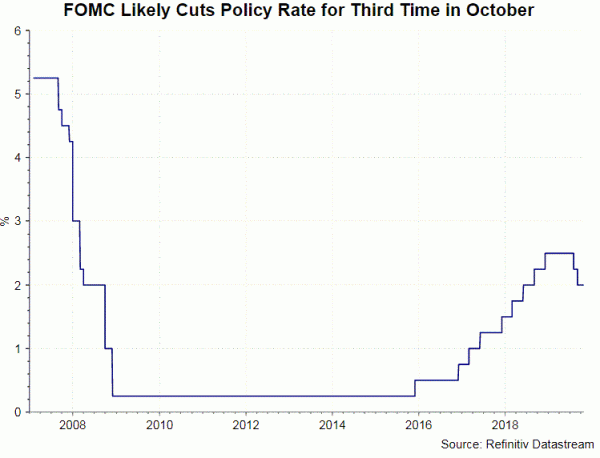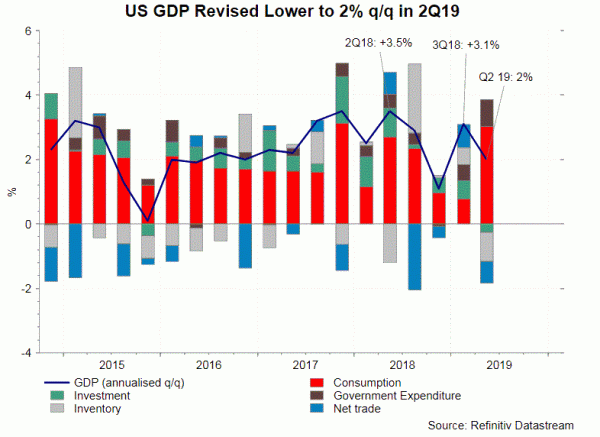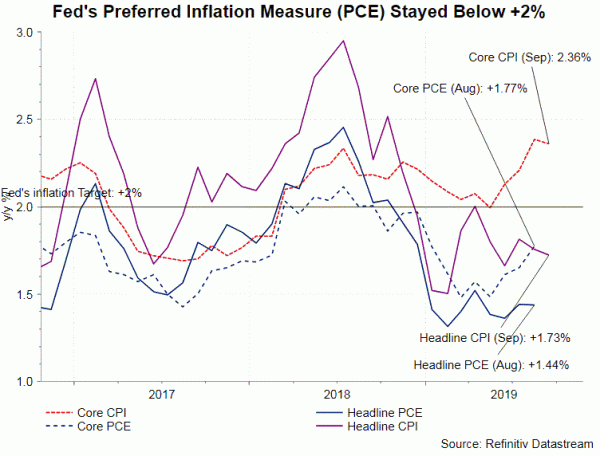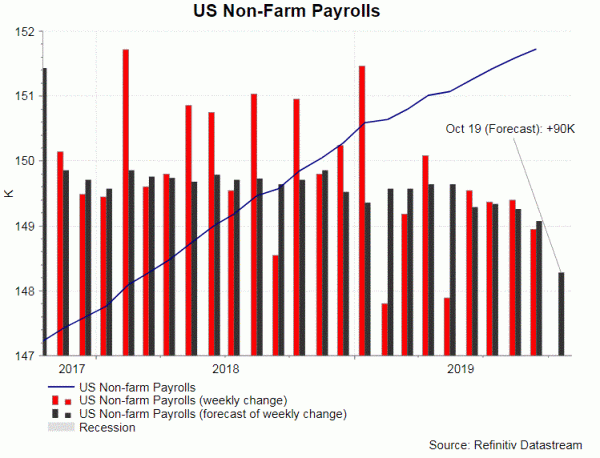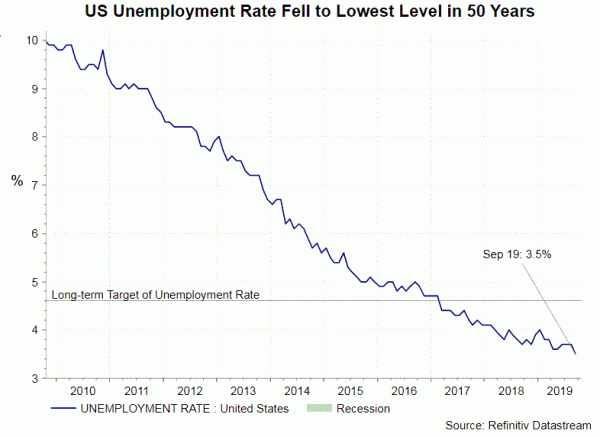The market has almost fully priced in a rate cut of -25 bps in the FOMC meeting this week. Some in the market are speculating that the Fed would change the forward guidance. Some expect the central bank to signal a temporary end to rate cut in October. This is hinged on the “insurance” cut and “mid-cycle adjustment” pledges made by Chair Jerome Powell. We, however, expect the Fed to maintain the stance to “act appropriately” according to incoming data. indeed, more reductions are still likely in coming months. As such, it might need to adjust its language about insurance cut as the upcoming rate cut would mark the third time this year.
Recall that in September, the central bank lowered the Fed funds rate to 1.75-2%. Chair Powell also indicated that the organic growth of the balance sheet will be resumed soon. On the forward guidance, the members affirmed that they will “continue to monitor the implications of incoming information for the economic outlook and will act as appropriate to sustain the expansion, with a strong labor market and inflation near its symmetric 2% objective”.
During the inter-meeting period, deceleration in US growth has continued. Headline CPI stayed unchanged at +1.7% y/y in September, missing consensus of +1.8%. Core inflation, excluding food and energy price, also steadied at +2.4%. GDP growth moderated to annualized +2% q/q in 2Q19, from +3.1% in the first quarter. Growth in third quarter might have eased further to +1.7%. On the job market, unemployment rate dropped further to 3.7% in September. Non-farm payrolls increased +136K, down from +168K addition a month ago. This also missed consensus of a +145K increase. Wage growth remained disappointing. Average earnings growth climbed +2.9% y/y, down from +3.2% in August. The lackluster wage growth has been a key drag to inflation.
In recent weeks, the market has turned less pessimistic over trade negotiations while Brexit uncertainty appears to have diminished. However, downside risks to US growth suggest that another rate cut is warranted. At the previous two rate cuts in July and September, the Fed described its policy decision as insurance for the economy, as opposed to speculations that another easing cycle has begun. With a third cut on the table, the Fed might need to change its language this month.
The forward guidance on interest rate outlook will likely remain intact. We have not seen signs of changing stance among Fed members. Kansas City Fed’s Esther George warned that rate cut “risks overheating the sectors of the economy that are already performing well”. Yet, she added that there are few of these “hot spots” despite lower rates. Meanwhile, Boston Fed’s Eric Rosengren reiterated that he “does not envision additional easing being necessary”. Both George and Rosengren have voted against rate cuts since July. Meanwhile, St Louis Fed’s James Bullard remained dovish and urged “the committee to take action”. Bullard last month proposed to cut rate deeper by -50 bps.

